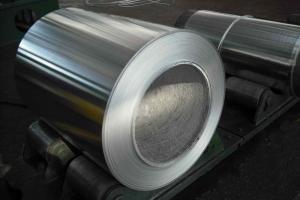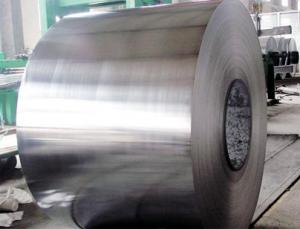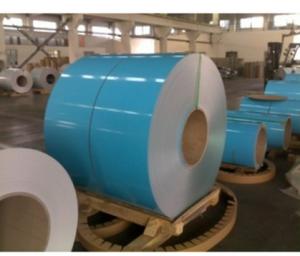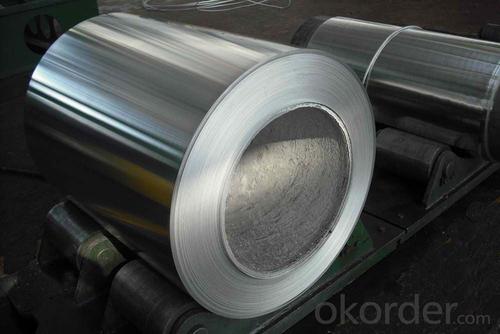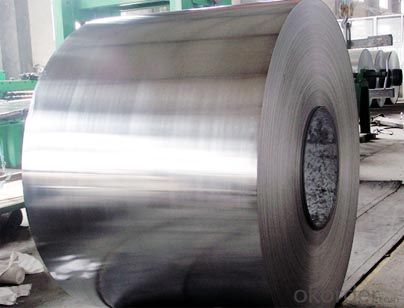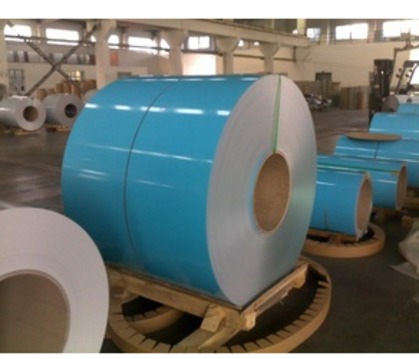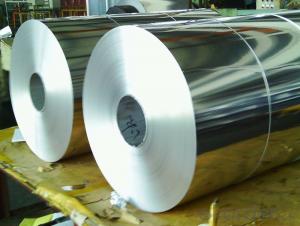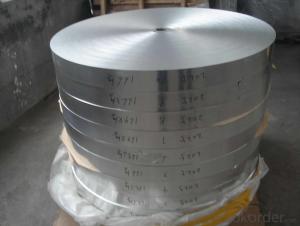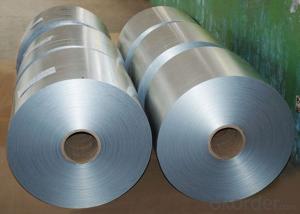5754 H14 H22 Aluminum Coil Manufacturers
- Loading Port:
- Shanghai
- Payment Terms:
- TT or LC
- Min Order Qty:
- 5 m.t.
- Supply Capability:
- 9000 m.t./month
OKorder Service Pledge
OKorder Financial Service
You Might Also Like
Product Description
Aluminum coil manufacturers
Temper: O H12/ H14/24 H16/26 H18 H19
Thickness: 0.20-3.0mm
Width: 16-1600mm
Usage: capacitor strip, aluminum plastic composite material, car parts, building decoration materials, stamping products, building mirror materials, nameplate, insulation materials, container package, welding parts, clock surface and disk, kitchen utensils, reflecting apparatus etc.
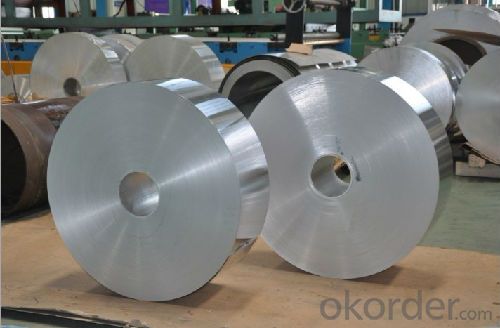
Application
Machine,auto, can, building, ship and so on.
Packaging & Shipping
Standard export seaworthy package or as cilents' requirement
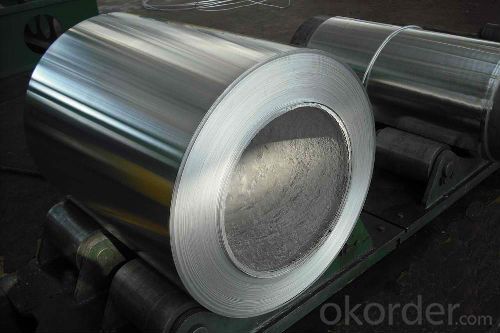
Company Information
Through the years, we have built many modern production lines, including one 1+2 hot rolling production line, six 2,450, 2,050, 1,650 and 1,450mm cold rolling lines, two 1,650mm foil rolling production lines, two 1,850mm continuous rolling production lines and one roll coating production line. Besides, we also bring in 8 x 20 annealing furnaces, tension leveled machines, tension pre-stretch machines, cutting machines, cleaning equipment, testing machines and packing equipment from at home and abroad to be able to complete various clients' requirements
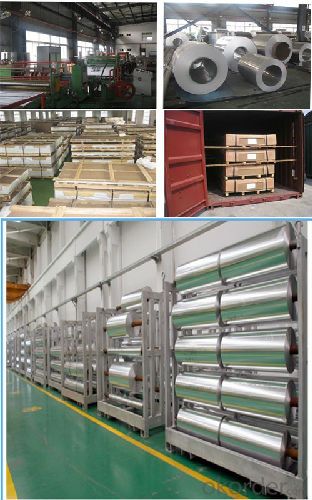
Colored aluminum sheet polyester coating is a UV protection coating; the polyester resin is the use of the main polymer chain of ester bond-containing monomer, adding an alkyd resin, an ultraviolet absorber and can be divided according to the glossiness matt and high-gloss series, especially for interior decoration and advertising boards.
Fluorocarbon colored aluminum sheet is fluorine eneyne fluorocarbon resin basic monomer, a pigment, ester solvents, additives, mixed together. After high temperature barbecue deposition, the molecular structure of the coating becomes tight, with superior weather resistance. According fluorocarbon coating film on the surface structure can be divided into two kinds of conventional fluorocarbon coating fluorocarbon nano. Especially suitable for public places, indoor and outdoor decoration, commercial chains, exhibition and display advertising and other decorative colored aluminum sheet
- Q: Can aluminum coils be welded or joined?
- Yes, aluminum coils can be welded or joined. Aluminum is a highly weldable metal and can be easily joined using various welding techniques. The most common methods of welding aluminum coils include TIG (Tungsten Inert Gas) welding, MIG (Metal Inert Gas) welding, and resistance welding. TIG welding is a precise and versatile technique that uses a non-consumable tungsten electrode to create the arc. It is widely used for welding aluminum coils as it provides excellent control over the welding process, ensuring high-quality and strong welds. MIG welding, on the other hand, uses a consumable wire electrode and a shielding gas to protect the weld zone from atmospheric contamination. This method is faster than TIG welding and is often preferred for larger production runs. Resistance welding is another common method used to join aluminum coils. It involves passing an electric current through the overlapping metal surfaces to create heat and pressure, resulting in a strong weld joint. This technique is often used in industries where high-speed production is required. It is worth noting that welding aluminum coils requires specific techniques and considerations due to the metal's unique properties. Aluminum has a lower melting point and higher thermal conductivity compared to other metals, which can make it more challenging to weld. Proper cleaning, preheating, and selection of appropriate filler materials are crucial for achieving successful welds. In summary, aluminum coils can be welded or joined using various techniques such as TIG welding, MIG welding, and resistance welding. However, it is essential to follow proper procedures and consider the specific properties of aluminum to ensure strong and reliable welds.
- Q: How are aluminum coils protected against UV degradation?
- Aluminum coils are protected against UV degradation through the application of a protective coating or finish. This coating acts as a barrier, shielding the coils from the damaging effects of UV radiation, preventing discoloration, corrosion, and other forms of degradation caused by prolonged exposure to sunlight.
- Q: Can aluminum coils be anodized?
- Indeed, it is possible to anodize aluminum coils. Anodizing, an electrochemical technique, enhances the existing oxide layer on the aluminum's surface, rendering it denser, sturdier, and more resistant to corrosion. This particular process finds widespread usage in aluminum sheets, plates, and coils. Anodizing can be effectively employed on both flat and shaped aluminum coils, imparting them with a plethora of appealing hues and finishes. Furthermore, the anodized coating significantly improves the aluminum's capacity to accommodate paint and adhesives, thereby rendering it a highly sought-after option for numerous applications, including architectural cladding, automotive trim, and electronic components.
- Q: What are the common surface finishes for aluminum coils in the automotive industry?
- Aluminum coils are extensively utilized in the automotive sector for various purposes due to their lightweight, high strength, and resistance to corrosion. To safeguard them from environmental elements and improve their appearance, aluminum coils in the automotive industry often undergo surface treatments. Anodizing is one of the most prevalent surface treatments for aluminum coils in the automotive industry. It is an electrochemical process that forms a thin protective layer on the surface of the aluminum coil. This treatment not only offers excellent corrosion resistance but also allows for customization of colors, making it a popular choice for automotive applications. Anodized aluminum coils can be found in a variety of colors and finishes, adding aesthetic appeal to vehicles. Another commonly employed surface treatment for aluminum coils in the automotive industry is powder coating. This technique involves applying dry powder paint onto the aluminum coil's surface and then curing it under heat to create a durable and long-lasting finish. Powder coating provides exceptional resistance to chipping, scratching, and fading, making it ideal for automotive components exposed to harsh conditions that require high durability. Moreover, powder coating offers a wide range of color options, enabling manufacturers to achieve the desired aesthetic appearance. Additionally, aluminum coils in the automotive industry may undergo other surface treatments like laminating, painting, or polishing, depending on specific application requirements. Laminating involves bonding a thin protective film onto the surface of the aluminum coil to provide additional protection against abrasion and chemical exposure. Painting entails the application of liquid paint onto the aluminum coil's surface, allowing for customization and protection against corrosion. Polishing, on the other hand, is a mechanical process that enhances the surface smoothness and appearance of the aluminum coil, resulting in a reflective and glossy finish. To summarize, the automotive industry commonly employs surface treatments such as anodizing, powder coating, laminating, painting, and polishing for aluminum coils. These treatments not only enhance the appearance of the aluminum coils but also provide protection against corrosion, abrasion, and other environmental factors, making them indispensable in the manufacturing of automotive components.
- Q: How are aluminum coils coated for corrosion resistance?
- Aluminum coils are coated for corrosion resistance through a process known as coil coating. This involves applying a protective coating onto the surface of the aluminum coils to prevent oxidation and corrosion. The coating is typically a combination of primer and topcoat that is applied using various methods such as coil coating lines or spray applications. The coating acts as a barrier, protecting the aluminum from environmental factors such as moisture, chemicals, and UV radiation, thereby enhancing its durability and extending its lifespan.
- Q: Are aluminum coils suitable for pharmaceutical vial caps?
- Yes, aluminum coils are suitable for pharmaceutical vial caps. Aluminum is a preferred material for pharmaceutical packaging due to its excellent barrier properties, which help to protect the contents of the vials from moisture, oxygen, and other contaminants. Aluminum coils can be easily formed into caps of various sizes and shapes to fit different vial types. Additionally, aluminum is a lightweight material, making it convenient for transportation and handling. Moreover, aluminum is resistant to corrosion, ensuring the integrity of the vial caps during storage and use. Overall, aluminum coils are a suitable choice for pharmaceutical vial caps due to their barrier properties, versatility, and durability.
- Q: Are aluminum coils susceptible to warping or bending?
- Yes, aluminum coils are susceptible to warping or bending. Aluminum, although lightweight and highly corrosion-resistant, is a relatively soft metal compared to other materials like steel. This means that it is more prone to bending or warping under certain conditions. Factors such as excessive heat, heavy loads, or improper handling can cause aluminum coils to deform. It is important to handle and store aluminum coils carefully to prevent any damage or distortion. Additionally, proper installation techniques and maintenance practices can help minimize the risk of warping or bending.
- Q: Can kerosene lubricate and cool aluminum coil when continuous punch?
- Yes, because water and oil are not solute, but they will emulsificate.
- Q: What are the different coil handling equipment options for aluminum coils?
- Some different coil handling equipment options for aluminum coils include coil lifters, coil tilters, coil cars, and coil upenders. These equipment options are designed to safely handle and transport aluminum coils in various industrial applications.
- Q: This question asks about the impact of aluminum coils on the quality of welding. It seeks to understand the relationship between the material properties of aluminum coils and the outcomes of the welding process.
- <p>Aluminum coils can significantly affect welding quality due to their unique properties. Aluminum has a high thermal conductivity, which requires more energy to weld, and can lead to rapid heat dissipation, affecting the weld's uniformity. Oxides on the aluminum surface can also interfere with the welding process, causing porosity and poor joint strength if not properly cleaned. Additionally, aluminum's low melting point can lead to distortion and warping if not managed correctly. The use of appropriate filler materials, proper cleaning, and precise control of welding parameters are crucial to achieve high-quality welds with aluminum coils.</p>
Send your message to us
5754 H14 H22 Aluminum Coil Manufacturers
- Loading Port:
- Shanghai
- Payment Terms:
- TT or LC
- Min Order Qty:
- 5 m.t.
- Supply Capability:
- 9000 m.t./month
OKorder Service Pledge
OKorder Financial Service
Similar products
Hot products
Hot Searches
Related keywords
